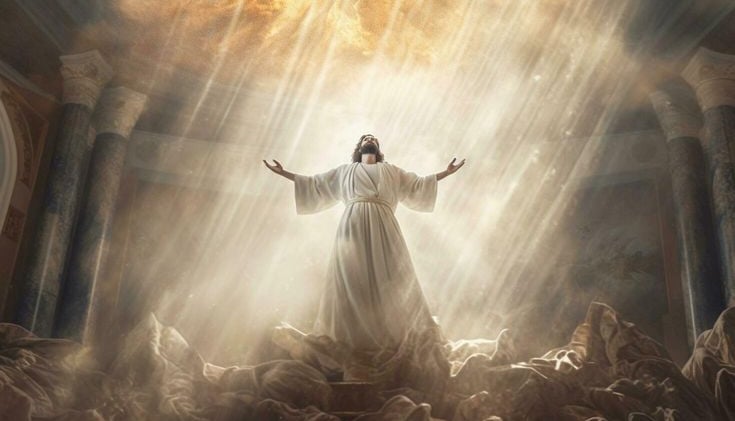Jesus and the Concept of Hell: A Deeper Dive
Is hell real? Learn about Jesus' perspective on hell through His parables and teachings.
BIBLE INSIGHTS


The Vivid Imagery of Hell
When we think of hell, images of torment and eternal suffering often come to mind. These depictions are largely influenced by biblical passages like Revelation 20:15, which describes a "lake of fire." However, to truly understand Jesus’ perspective on hell, we must delve deeper into the Gospels and examine His parables.
Jesus’ Parables: Windows into Eternity
One of the most vivid depictions of hell is found in the parable of the rich man and Lazarus (Luke 16:19-31). Here, Jesus paints a stark contrast between the afterlife of the rich man, who is tormented in Hades, and Lazarus, who finds comfort in Abraham’s bosom. This parable suggests that there is a clear distinction between heaven and hell, and that our choices in this life have eternal consequences.


Source: Google Image
Beyond Fire and Brimstone
While the image of hell as a place of physical torment is prevalent, Jesus often spoke about hell in terms of spiritual separation from God. In Matthew 25:41, He states, “Then he will say also to those on his left, ‘Depart from me, you cursed, into the eternal fire prepared for the devil and his angels.’” This verse suggests that hell is not merely a place of physical suffering, but a state of eternal separation from the source of all love and light.
The Purpose of Hell in Jesus’ Teachings
It’s important to note that while Jesus spoke about hell, His primary message was one of love, grace, and redemption. The concept of hell, in His teachings, serves as a warning, a motivation for repentance, and a reminder of the eternal consequences of our choices. Jesus' emphasis was always on the possibility of reconciliation with God through faith in Him.


Source: Google Image
A Balanced Perspective
When considering the topic of hell, it's crucial to approach it with a balanced perspective. While the Bible does present a clear picture of a place of eternal separation from God, it also offers hope and promise of eternal life for those who believe in Jesus Christ. As 2 Peter 3:9 reminds us, "The Lord is not slow in keeping his promise, as some understand slowness. Instead he is patient with you, not wanting anyone to perish, but everyone to come to repentance."
So, what does this mean for us today?
The concept of hell can be a challenging one to reconcile with our understanding of a loving God. However, by examining Jesus' teachings, we can gain a deeper understanding of this complex topic. Ultimately, the choice of whether to experience eternal life or eternal separation is ours to make.
Frequently asked questions
What is the main message of the article?
The article explores Jesus' teachings on hell, emphasizing both the reality of separation from God and the importance of God's offer of salvation through faith in Him.
What is the purpose of the concept of hell in Jesus' teachings?
The article suggests that hell serves as a warning, motivating people to repent and seek reconciliation with God.
What biblical passages does the article refer to regarding hell?
The article mentions Luke 16:19-31 (the parable of the rich man and Lazarus) and Matthew 25:41.
What is the ultimate message of the article?
The ultimate message is that the choice of eternal life or eternal separation lies with each individual.
Does the article present hell solely as a place of physical torment?
No, the article emphasizes that hell is primarily a state of spiritual separation from God, though physical suffering may also be involved.
Does the article offer any hope regarding hell?
Yes, the article emphasizes that God desires for all people to be saved and that there is hope for redemption through faith in Jesus Christ.
